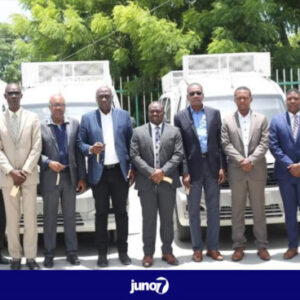The decree of July 19, 2024 establishing, organizing and operating the National Conference in Haiti is part of an approach of institutional reconstruction and democratic consolidation. Its feasibility is based on a clear organizational structure, precise objectives and robust monitoring mechanisms. However, its success will depend on political commitment, the mobilization of financial resources and citizen participation without interference. Rigorous and coordinated implementation is absolutely necessary to carry out the necessary reforms and definitively strengthen democracy in Haiti, in the face of these transitions that never end with a series of governments with failing administrations.
1. Legal and Institutional Framework The decree is based on a series of legal and regulatory provisions, including decrees and orders relating to territorial boundaries and state structures. The legal legitimacy of this decree is reinforced by its adoption by the Council of Ministers, which confers formal authority and institutional recognition.
Participatory Device:
Article 1 : Establishes an inclusive framework, integrating various representations of society (youth, academics, religious, magistrates, etc.). This approach is legally sound, because it meets the requirements of representativeness and inclusiveness provided for by international conventions on human rights. Clear Objectives:
Articles 2 and 3 : Set specific objectives for the National Conference, including the assessment of state institutions, the promotion of human rights and the formulation of recommendations to strengthen democracy. This approach is in accordance with the principles of transparency and democratic accountability. 2. Organization and Operation Organizational structure :
Articles 5 to 11 : Detail the structure of the National Conference, with a Steering Committee and a Technical Organization Secretariat. This hierarchical organization allows for effective coordination of work and ensures a clear distribution of responsibilities. Thematic Commissions:
Articles 10 to 15 : Provide for the creation of thematic commissions to deal with specific areas (justice, education, health, etc.). This structure allows for a targeted and specialized approach to the issues, which is essential for an in-depth and relevant analysis. Functioning :
Articles 16 to 22 : Define the operating procedures, including methodology, meetings and activity reports. The regularity of reports and the transparency of work meet the requirements of good governance and accountability. 3. Monitoring and Implementation Monitoring committee :
Articles 16 to 20 : Establish a Monitoring Committee responsible for the implementation of the recommendations. This monitoring mechanism is crucial to ensure that the conclusions of the Conference are effectively implemented. Cooperation with national and international authorities is also provided for, which is essential to obtain the necessary support for the implementation of reforms. Periodic Reports:
Article 20 : Requires periodic reports submitted to the President of the Republic and to Parliament, thus ensuring continuous supervision and transparency in the implementation of recommendations. 4. Miscellaneous and Final Provisions Ethics and Transparency:
Articles 21 and 22 : Impose principles of ethics and transparency on members of the National Conference, with sanctions in the event of violation. These provisions are consistent with the standards of responsible governance. Funding and Resources:
Articles 23 to 25 : Provide for the financing of the work by the national budget and the support of international partners. This provision is crucial to ensure the financial feasibility of the Conference activities. Advertising of Works:
Article 26 : Requires the public dissemination of works, thereby strengthening transparency and access to information for citizens. 5. Feasibility and Challenges Legal Feasibility:
The decree is legally sound and well structured. It is based on existing legal bases and offers a clear and detailed organisation. The objectives and responsibilities are defined precisely, which facilitates their implementation.
Potential Challenges:
Political commitment : The success of the Conference will largely depend on the political commitment of national authorities and the willingness of the various stakeholders to cooperate. Financial ressources : Ensuring adequate funding is crucial. Although the decree provides for international support, mobilizing these resources could be a challenge. Coordination and Management: Effective coordination between the Steering Committee, the Technical Secretariat, and the thematic commissions is essential. Rigorous management is necessary to avoid overlaps and inefficiencies. Citizen Participation: Ensuring active and meaningful participation of all stakeholders, especially marginalized groups, is crucial to the legitimacy and success of the Conference. Done in Port-au-Prince, on [date du décret].
Similar articles








